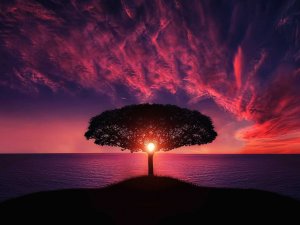Author’s Note: Readers know that the recent trip to India of Justin Trudeau of Canada was ideally placed to be a celebratory voyage and his entourage consisted of several high ranking Canadian Sikhs. But the local politics of India could not quite stomach the success of Sikh Canadian migrants. As expected, the Indian bureaucracy focused not at all on the success of Indian Sikhs in Canada; instead it concentrated on digging up and reinventing events from 1984 and once again raising the bogey of Khalistan and the dismemberment of India – after over 30 years. I find that in the process, the Indian press and the ruling bureaucracy failed to serve the cause of truth or the nation that they pretend to serve. This essay was written in 1994. Why do I resurrect events and attitudes from so long ago? Because they are as entrenched today as they were then. Times have changed but the attitudes remain unaltered. I speak now, as I did then, because over the years, a false understanding of events and issues has remained — missing is the sense of introspection that would mark progress. The rulers in Delhi have largely ill-served their nation. The only words that I have added are these few.
In writing this, the usual reason – to convey a point of view – is reinforced by a better one, to initiate a debate. Debating Khalistan is an impossible assignment and an unpleasant chore in some ways. Yet, it is only in debate that we hone our skills, sharpen our focus and define our goals. And we should not be afraid to take on sacred cows. This discussion is particularly timely because in recent years a litmus test of political correctness has emerged by which to judge a Sikh. If your opinions fall even a hair short of total support for the idea of Khalistan you are quickly branded anti-Sikh. And this unfortunate. This debate needs a devil’s advocate for an impossible cause and I am that – a devil’s advocate.
The word “Khalistan” conjures some very disturbing images among Indians: people still remember the painful birth of Pakistan. The Indian government has used the recent demand for Khalistan by Sikhs for some petty and inane policies which are more likely to make that dream of many to come true. Many nasty suggestions have been made regarding the Sikhs (send them to Pakistan!) by many Hindus, including Rajiv Gandhi. The reality is somewhat more complex.
Certainly, the Sikhs need no lessons in patriotism. It has been repeatedly and clearly established that during the struggle for India’s independence, the sacrifice of the Sikhs was far in excess of their proportion in the country; fully 70% to 80% of all freedom fighters who were arrested, sentenced, exiled or hanged by the British were Sikhs. Within a few years of independence, Sikhs had transformed the Punjab into the richest province of India with the highest standard of living. Where India used to endure famines every year, now, thanks to the Punjabi Sikh farmers, the country can even export food. In many ways India owes its unity and integrity to the Sikh soldiers who served it so well in its three wars against Pakistan and one against China. How is it that things have changed so much so soon?
Before the attack on The Golden Temple in June 1984, on Guru Arjan’s martyrdom day, one could perhaps count on fingers of one hand the number of Sikhs who would opt for an independent sovereign republic of Khalistan. After the killing of Sikhs in November 1984, and the subsequent repressive policies of the Indian government solely against the Sikhs, one can count on the fingers of one hand the number of Sikhs who would not choose Khalistan.
This striking shift occurred within months of the attack on the Golden Temple. Rather than being angry at it, frustrated by it or afraid of it, one should understand that such dramatic swings are not to be taken lightly, but are not necessarily etched in stone either. The longer such feelings last, the more entrenched they become and harder to dislodge. The Rubicon may well have been crossed in this matter. The massive increase in the demand for Khalistan indicates that the Sikhs are not sure of their place in India. When the present is slippery the future appears menacing.
Blaming a foreign hand, as Indira and Rajiv Gandhi often did, is escaping responsibility; an objective view would be more useful. Pakistan has been consistently accused of fomenting and fanning rebellion in Punjab and Kashmir. Not that there is much proof of it but even if it were true, an outsider can only exploit a house divided where discord already exists. If people who have already sacrificed so much for the unity, integrity and viability of India for so long now no longer want to be a part of it, there are only two possible explanations. Either most of the 15 million Sikhs were struck by lightning and have lost all reason or there is merit in what they say; one must look at what the Indian government promised or delivered to them in the past 45 years ago.
The Sikhs have said that the promises made to them by Mahatma Gandhi and Jawahar Lal Nehru before 1947 have not been honored. It was for this reason that the Sikh members of the Constituent Assembly of independent India did not initial their acceptance of the Constitution of India. The record of the documents and speeches exists and is simple enough to verify. To have to wait and agitate for 45 years for promises to be fulfilled is indeed to have to wait too long. By now all promises should have been dealt with — fulfilled or negotiated — but resolved. At this time, most Sikhs feel that in India, justice is selective and politics reign supreme. Again, important here is not only the reality but also its perception. To dismiss this feeling as a mere hallucination (of 15 million people) would be compounding injustice with stupidity.
When Sikhs look at the 500 years of their history, it surprises them that anyone should question their loyalty or their right to live with dignity on their own terms in India. Despite long standing disaffection with the Indian government, the Sikhs’ loyalty was not questioned when they defended India against China or Pakistan, nor was it in doubt when Punjab contributed to India’s independence or economic recovery. In essence, today’s Sikh is saying: “My loyalty to the country is a matter of history; to ask me to take a loyalty oath is an insult. I do not have to prove my fitness for a place of dignity here. You, who have done me wrong and are such larger majority than I, have to show me that you wish me to remain a part of India.” Who is he addressing? The Indian government and the majority community.
It is necessary to remember that despite the attack on the Golden Temple and the widespread terrorism directed specifically against them, Sikhs did not rebel en masse against India. Examine this behavior of Sikhs in the context of what Lincoln said at his first inaugural in 1861: “If by the force of numbers, a majority should deprive a minority of any clearly written constitutional right, it might, in any moral point of view, justify revolution…” Indira Gandhi, who probably wanted a strong united India, will then be remembered as the one who fragmented the people and dismembered the country.
If the Indian government cannot act swiftly, decisively and effectively to assure the Sikhs of justice and security, it will never regain its right to govern nor should it.
The Sikhs would then have little choice but to carve out a homeland of their own. Khalistan, no matter how small or imperfect would then become a reality. Demands of human dignity will prevail and, be it ever so humble, be it ever so meagre, Khalistan will also exist among the nations of the world. No army and no government rhetoric will be able to prevent it. And at this time, the Indian government has clearly lost any claims to the hearts and minds of the Sikhs. That the country would be small and landlocked and its economic base limited – these things do not matter. The country would be larger than many member states of the United Nations, its economy better than many emerging nations in Eastern Europe.
In recent years, many Sikhs have presented most lucidly all the good arguments for Khalistan – the broken promises, systematic injustice to the Sikhs, all the history etc. But as T.S. Eliot reminds us, “History has many cunning passages, contrived corridors and issues, deceives with whispering ambitions. Guides us by vanities.” The issue of Khalistan is not all black or white. It is not Khalistan now or Khalistan never; it is perplexing.
I can present several good reasons why Khalistan is not desirable.
Never in their history have Sikhs set about to conquer territory, subjugate people in the name of religion or establish Sikhism as a state religion. Ranjit Singh, for instance, was a ruler who happened to be a Sikh, and not particularly good one at that. In his later years, he was much better at being a ruler. He did not establish Sikhism as the state religion. His administration was secular. His Punjab remained a multi-religious country. It did not become a Sikh Punjab.
Let’s look at it somewhat differently. I am a minority no matter where I live – in India or wherever. When I came here in 1960 there were two recognizable Sikhs in New York. In Oregon, where I went to school, I was the only one. Many of you can share that experience. Except in Punjab, even in India I remain a minuscule minority. A part of me says wouldn’t it be nice, wouldn’t it be right if there was a little bit of dirt, a little part of this earth which was mine, where I was the king! And that says – “Khalistan now.”
Another part of me says, where I hold sway there will be someone else – a non-Sikh – who will not, whose sensitivities will be ignored, whose rights will be a little abridged, who will not be the chosen one, who will be second class for no fault except that he is not a Sikh. And that is not the Sikh way. That says to me that countries based on religious identity alone are not desirable. Two examples that come to mind are Pakistan and Israel.
But what is undesirable can become historically necessary and even inevitable. Again, Pakistan and Israel come to mind.
Two thousand years of diaspora, bigotry, suffering and pogroms convinced the Jews and the world of the necessity and the inevitability of a Jewish homeland. Before the formation of Pakistan in 1947, the demand for it was not a longstanding one. Just before India’s independence, Mahatma Gandhi and three others dominated the political scene – Nehru, Patel and Azad. Nehru – the father of Indira Gandhi became the Prime Minister, Patel was the Home Minister, and Azad – the sole Muslim (the other two were Hindus) – was the Education Minister.
Azad wrote his diaries — which were sealed for over 30 years after his death, then finally opened. In them, he put the blame for Pakistan squarely on Nehru. He claimed that Nehru and his Hindu dominated political party were most reluctant to share power with the Muslims and the Muslims were suspicious of the Hindus. The Result: partition of the country, and Pakistan became not only necessary but inevitable. Seems like history may be repeating itself in Punjab.
The partition of the country in 1947 carried a horrendous price tag. Nations are formed when there is a shared culture, language, history and so on, not necessarily religion only. The Sephardic and Ashkenazi Jews in Israel do not get along all that well even though both are Jews. Religion alone could not hold together Pakistan and Eastern Bengal, now Bangladesh. Someday, I am sure Bangladesh and Indian Bengal will want to come together as Greater Bengal, based not on religion but on culture, as can be seen in the reunification of Germany.
The demand for Khalistan has to be looked at in perspective. Before 1984 no responsible Sikh leader demanded Khalistan with one exception: Jagjit Singh Chauhan who is London based and has been agitating for Khalistan for over 20 years. I met him in the seventies and he was a voice in the wilderness; not many gurdwaras would give him the time of day. In 1984 he did not plant a flag and declare, “No more India – We are Khalistan – a separate sovereign country” although there was sufficient provocation, nor did any other Sikh leader.
When Pakistan was formed, Sikhs suffered – we lost a lot. The refugee problem was worse than in Europe during the Second World War. We also lost a part of our heritage. The birth place of Guru Nanak, the historical places in Lahore and Punja Sahib, to name a few. If Khalistan were to be carved today, we would lose a lot more of our inheritance. The Gurus did not live and preach only in Punjab. They traveled all over in India from Assam and Bengal to the South. More importantly, look at our people.
The Sikhs are an outgoing, assertive, outward looking people. They would not be satisfied for long, hemmed in a mini-country with limited opportunities. Soon the borders would be strained. Pakistan is friendly now, but for how long? Remember only people and individuals have friendships, nations do not; they have self-interest to guide them. The words “Pakistan” and “Khalistan” literally mean the same – “land of the pure” in their respective languages. How neighborly will be two lands of the pure be, and for how long?
If Khalistan is undesirable, has it become necessary and inevitable? Now that the demand for Khalistan has surfaced, how hard a demand is it? Is it written in stone? I am not sure, even though I realize that once the genie is out of the bottle, it is difficult, if not impossible, to push it back.
Despite all the injustice to the Sikhs, in 1985 Longowal and the Sikhs signed an accord with Indian government – to give peace another chance. Too bad that the Indian government of Rajiv Gandhi did what Indira Gandhi had done earlier; they did not fulfill their promises but delivered more repression. Again in 1989 the Sikhs participated in the electoral process and in a landslide victory welcomed the new Prime Minister V.P. Singh into a peaceful, open Punjab – no security was necessary. By this act they clearly showed the world that they were not rejecting ties to India, only that the nature of the ties had to change.
Until only one year ago (1993) Simranjit Singh Mann was still looking for a solution within the Indian Constitutional framework. Too bad that the government delivered what it always did – more repression.
Nations cannot be bonded by force, as the Soviets have discovered, but only by enlightened self-interest. The West Europeans are learning that closer political and economic ties can be beneficial to all – of course there is resistance because of the history of centuries of suspicion, war and bloodshed. It can’t be easy for any of the Europeans to comfortably trust the Germans. If the Soviets had disbanded earlier, a looser, cooperating federation of nations might have resulted – now the Ukrainians, Lithuanians and Estonians are at each other’s throat. Just look at Yugoslavia. India awaits a similar fate and needs enlightened leadership.
I can visualize the whole Indian subcontinent – including Pakistan and Bangladesh – demarcated into several secular nation-states based on culture, language and economic interest; the level of cooperation to be determined by their self-interest and their shared history. As it is, I find that most Sikhs have much in common with the culture of Punjab, and that means Pakistan, than with the rest of India where I can only communicate in English. In post-independence India, the only cultural phenomenon that may be the uniting glue of modern India appears to be the Hindi movie industry; any nation deserves better. I would like to see the nation-states free to pursue their own economic and cultural development and not be under the heels of remote bureaucrats in Delhi. Only then will they be able to preserve their rich heritage and contribute to the diversity and richness of the Indian subcontinent.
To my mind the Sikhs have clearly rejected the model of the present Indian governing system. Khalistan, though undesirable, has become increasingly necessary, primarily because of the shortsighted policies of the Indian government. Has it become inevitable?
By now events have probably already overtaken what I have written here, but when I look at my views I have to echo Walt Whitman who said, “Do I contradict myself? Very well then, I contradict myself. I am large and I contain multitudes.”
The issue of Khalistan can, and should, be debated but it will eventually be decided not in New York, London or New Delhi, but in the streets and villages of Punjab. In the meantime, Sikhs everywhere support the legitimate aspirations of our people in the Punjab in whatever form they are expressed.
One thinks of Thomas Jefferson who said: “I weep for my country when I reflect that God is just.”






